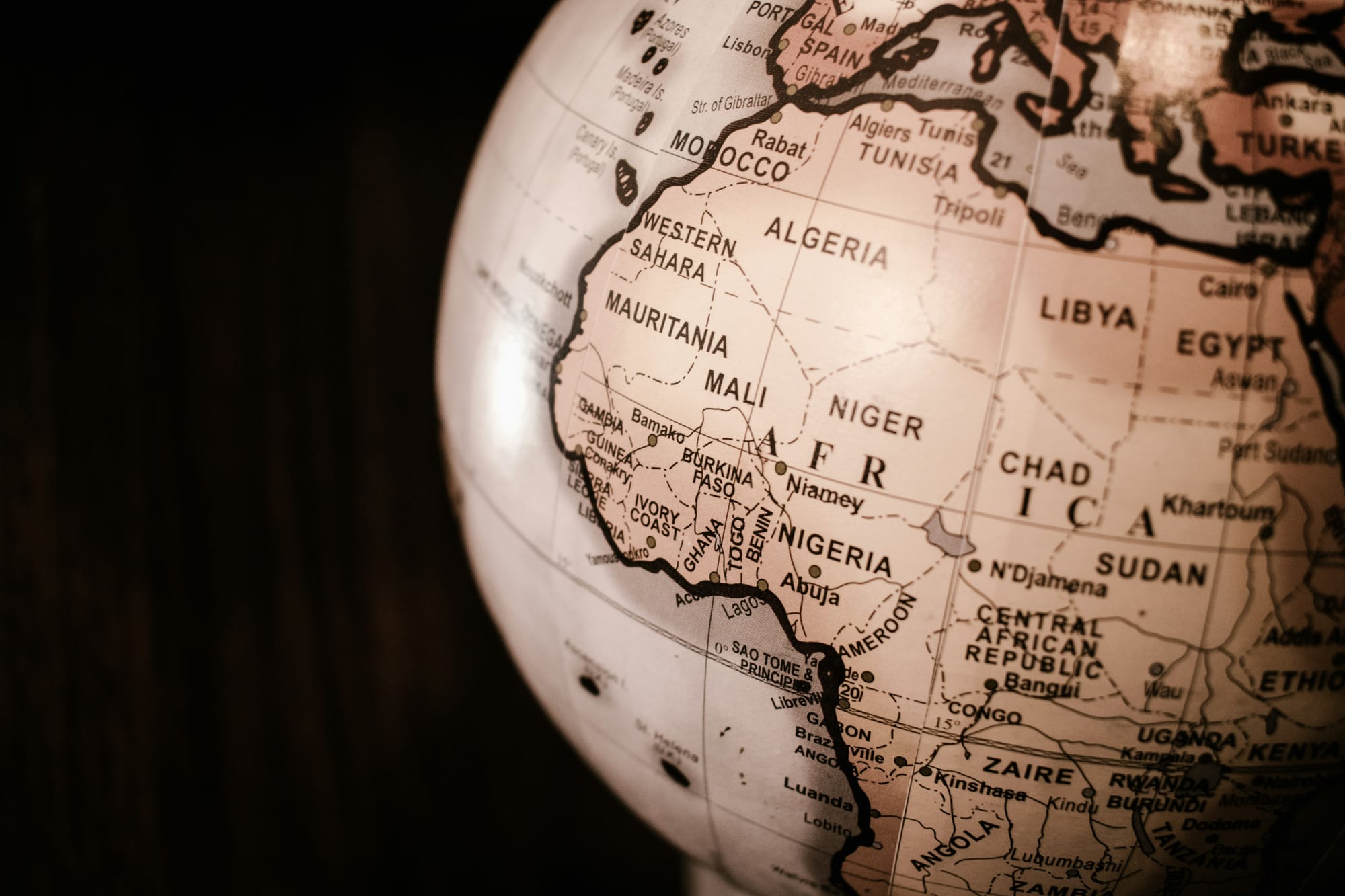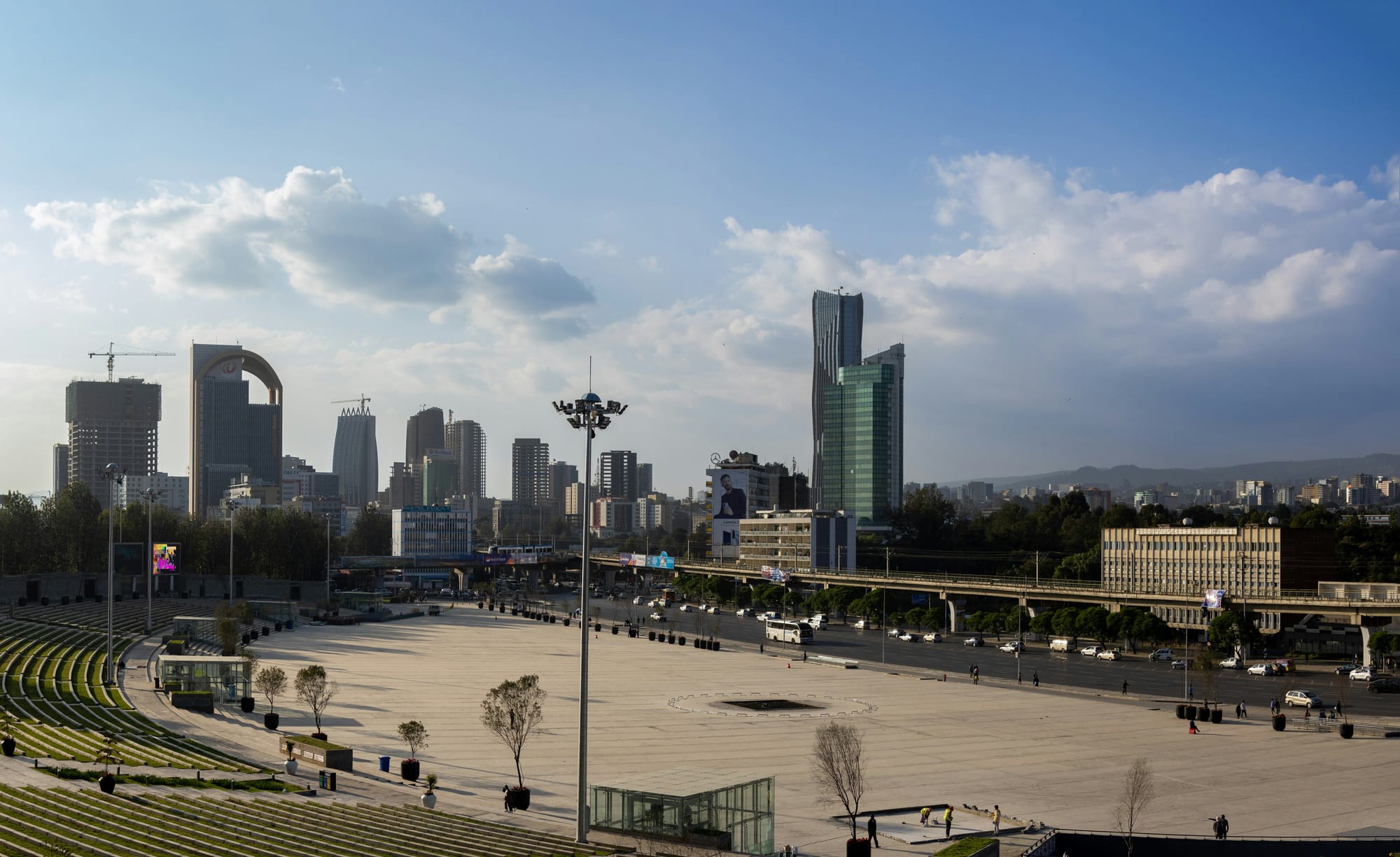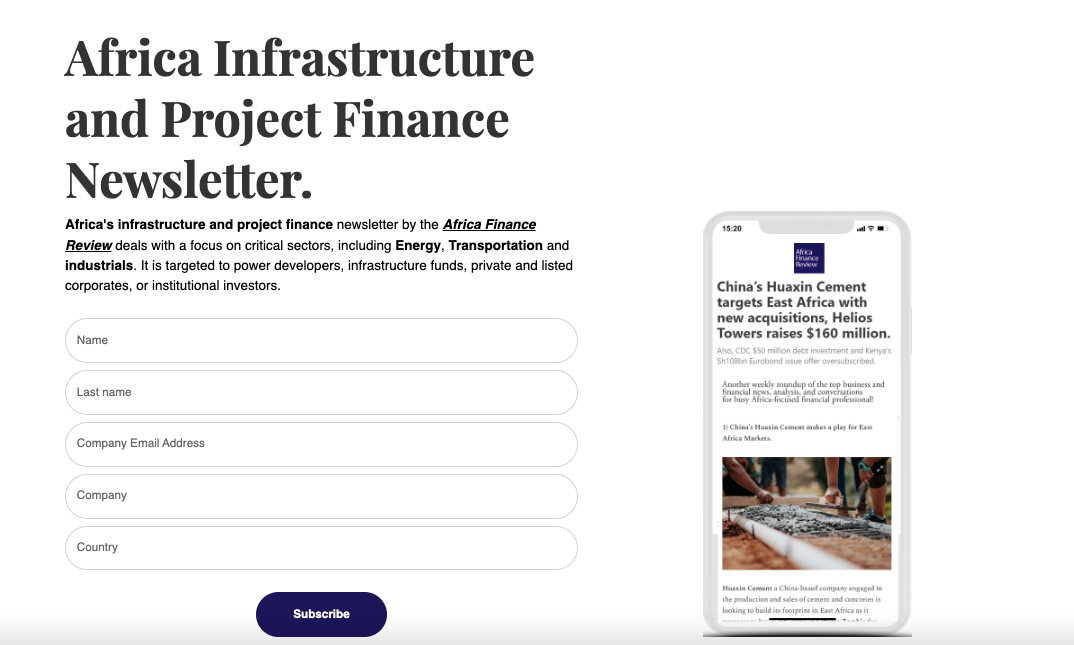This Week in Africa Finance

More in today's email:
- Tackling the 'African Premium' Issue
- Ethiopia's Thriving Investment Renaissance
- Investors Confidence in Nigeria's Economic Reforms Surges
- Talking Points: Introducing the 'Africa Infrastructure and Project Finance Newsletter
- The Termsheet
Let's dive in!
Tackling the 'African Premium' Issue

African countries under the African Union (AU) plan to create the Africa Credit Rating Agency (AfCRA), facilitated by the African Peer Review Mechanism (APRM).
A Credit Rating Problem
The continent faces an 'African Premium' issue in the international credit market, which is dominated by the big three credit agencies: S&P, Fitch Ratings, and Moodys. These agencies collectively control 95% of the financial market credit rating sector.
The assessments made by these credit rating agencies are influenced by factors such as political risk and economic instability, resulting in significantly higher borrowing costs that investors associate with the risks of African countries. As a result, nearly all African nations struggle with this high cost of borrowing.
A growing sense of perceived bias has led to a vocal response from African nations, highlighting the urgent need for a well-informed credit rating assessment system that accurately reflects the economic, social, and political realities of Africa. This system should be based on real-time, on-the-ground data and analysis.
The Quest for Credit
African nations have a strong demand for Eurobonds and will continue to seek access to international markets to address ongoing budget deficits and fund social and infrastructure projects. The winds of change across Africa, driven by economic reforms, infrastructure investments, and improvements in currency stability, require a more refined evaluation from credit agencies.
The creation of the Africa Credit Rating Agency( AfCRA) follows recent development by the African Development Bank, Prosper Africa (a U.S. presidential initiative), and the United States Department of the Treasury who have agreed to create an African online credit rating data platform.
While political will is essential for the success of these agencies, it should not hinder their effectiveness. It is crucial to establish the necessary operational and regulatory structures, ensuring their independence to achieve overall benefits for African economies.
Further reading :
- https://www.africafinancereview.com/the-great-africa-eurobon...
- https://www.africafinancereview.com/the-demand-for-an-africa...
Ethiopia's Thriving Investment Renaissance

Ethiopia is experiencing a resurgence in investment activities, marked by significant progress in economic growth, infrastructure development, and foreign direct investment (FDI).
For years, the country faced challenges such as wars, economic upheaval, and uncertainty. However, it is now recognised as one of Africa's fastest-growing economies.
- Last year, Ethiopia floated its birr currency on the open market to stabilize it and address the demand for foreign currency.
- Additionally, the government introduced market-friendly reforms that allowed foreign companies to enter the banking sector, which had been dominated by state-run banks for years.
- Infrastructure development is advancing rapidly, with efforts aimed at enhancing both physical and digital infrastructure.This includes improvements to road networks connecting rural and urban areas, ports and cities.
- Ethiopia is also making substantial investments in energy transition and electricity generation, highlighted by projects like the Grand Ethiopian Renaissance Dam (GERD).
- The establishment of the Ethiopian Securities Exchange (ESX), backed by the country’s $38 billion sovereign wealth fund, is expected to be a game changer for companies and investors looking to list on the market.
Investors are Coming
Investors are taking notice. Africa's richest man, Aliko Dangote, recently announced a new $400 million investment in Ethiopia's cement sector, which will double Dangote Cement Ethiopia's production capacity. This investment is anticipated to create over 25,000 additional jobs and generate approximately 5 million tonnes of cement annually within two years.
The agriculture industry is also seeing growth, with a $600 million agreement involving Ethiopia's Sovereign Wealth Fund, Ethiopian Investment Holdings, the Agricultural Works Corporation, and the UK private equity firm Asset Green Company. This partnership aims to jointly invest in a two-phase, 15,000-hectare integrated dairy and commercial farming project in Addis Ababa. The first phase will focus on dairy farming and processing, while the second phase will expand into commercial farming, covering cotton, oilseed, and rice production, all utilising state-of-the-art technology.
Further reading :
- https://www.africafinancereview.com/global-and-domestic-inve...
- https://www.africafinancereview.com/ethiopia-floats-currency...
Investors Confidence in Nigeria's Economic Reforms Surges.

Tinubunomics, Nigeria’s economic policy aimed at readdressing the country's economic challenges driven by years of fuel subsidy, corruption, fiscal mismanagement and currency devaluation is now bearing economic fruit.
In 2022, almost 40% of the country’s revenue was spent on fuel subsidies, it also experienced constant currency devaluation leading to many multinationals leaving the country and selling their businesses to local entities.
Since the entry of the government of Bola Tinubu, the immediate focus was to remove the fuel subsidy and let market forces determine the fair value of the Naira. The economic reforms are now showing positive signs with investors reacting favourably to these trend
- Nigeria’s sovereign risk spread has dropped to its lowest since Jan 2020, leading to lower borrowing costs.
- The reforms are having a stabilising effect on the Naira
- Foreign capital in Nigeria's financial instruments has increased
- Bond yields are also dropping
- The NGX All Share Index has performed well, up 11% since December 2024.
What Next
While investors' confidence grows, inflation and food prices remain high. Electricity generation and distribution also remain a major challenge, which if resolved has the potential to kick-start an economic revolution. Previous governments have tried to address this issue but have failed. However, the current government seems to be making an effort to lure private capital investors into the sector, but the right regulatory environment is needed to make it happen.
Introducing the 'Africa Infrastructure and Project Finance Newsletter.

Africa's infrastructure funding gap exceeds $100 billion
As anticipated, the demand for substantial infrastructure investment is expected to grow, as African governments and private capital investors recognise the critical role infrastructure plays in promoting economic progress.
As expected the demand for robust infrastructure investment is expected to grow as African governments and private investors recognise the critical role the infrastructure plays in promoting economic progress.
The Africa Infrastructure and Project Finance Newsletter will cover deals, trends, key players, and financing initiatives dedicated to supporting large-scale projects across the continent. This includes projects in transportation, energy, digital infrastructure, and urban development.
The newsletter is targeted at power developers, infrastructure funds, private companies, institutional investors, and private capital investors.
Sign up here for the upcoming February edition!



